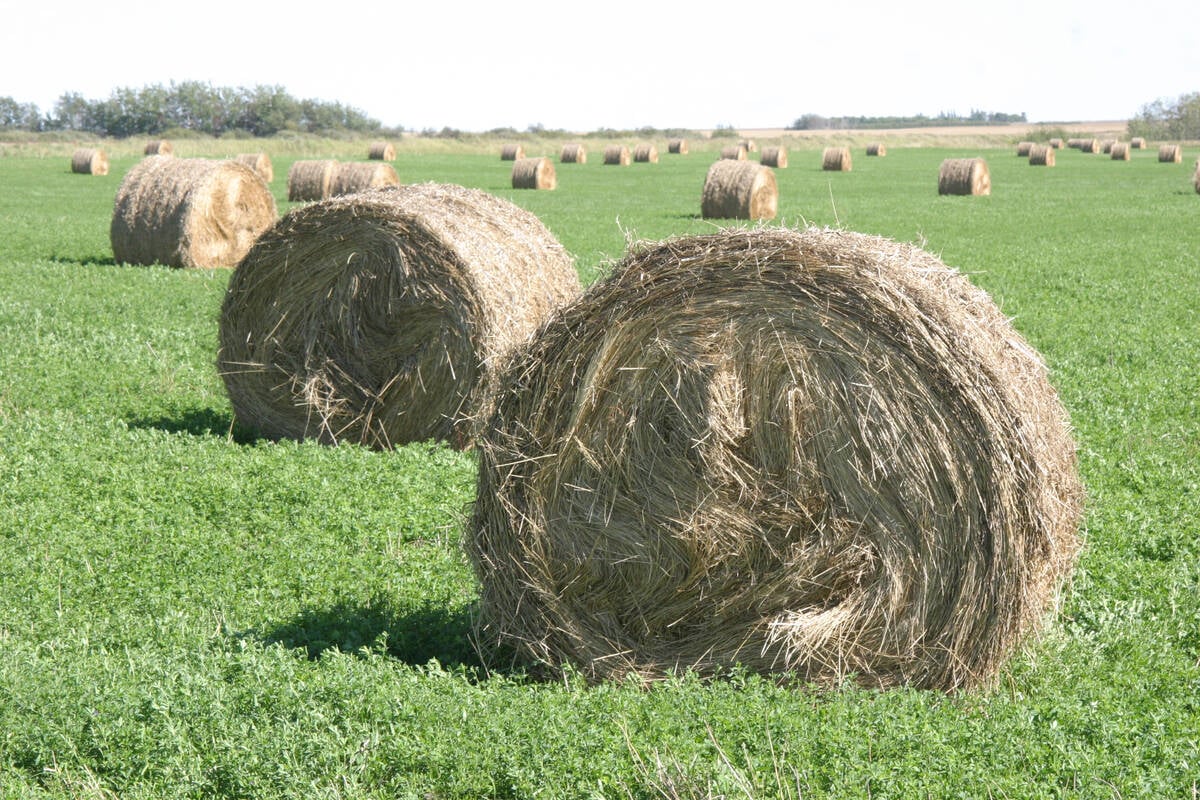CALGARY — A new alliance of farm groups is demanding the prime minister hold a plebiscite to settle the barley marketing issue.
The Market Choices Alliance wants Jean Chretien to carry through with his election promise to hold a farmer vote on whether the domestic barley market should cover all of North America, said Ted Allen of United Grain Growers.
The group consists of UGG, the Western Barley Growers, Western Canadian Wheat Growers and the Alberta Barley Commission. They are confident the vote would swing in favor of a continental barley market.
Read Also

Breaking down successful winter feeding into six steps
It’s that time of year when it is important to start planning for a cow herd’s winter feeding program. Here are six steps I think are necessary to consider when getting your feed tested.
When asked by reporters at a Calgary press conference when the vote should be, wheat growers president Hubert Esquirol replied, “yesterday.”
Tim Harvie, chair of the barley commission, says it’s the fundamental right of western farmers to decide how to sell their barley, whether through the Canadian Wheat Board or on their own.
“Barley growers in Eastern Canada have unrestricted access to the U.S. and Mexican markets. We believe farmers in Western Canada should also be entitled to the same opportunities,” said Harvie.
Allen added, “we’re willing to roll the dice on this thing. We think it’s important the people whose livelihood is at stake have a voice in how their crops get marketed.”
The alliance representatives cited surveys that indicate farmers want a vote on how to sell. They claim there was widespread support for the continental barley market, which was open for 40 days last summer. The market ended when it was successfully challenged in court by the three prairie wheat pools and others.
Minister didn’t respond
Barley growers president Ted Cawkwell said his organization has tried to meet with agriculture minister Ralph Goodale to talk about the plebiscite but received little response.
Cawkwell and Harvie argue that the United States has a malting and feed barley deficit in the California dairy market and Pacific Northwest area. Canada could fill in the gaps.
Allen said they are not opposed to the Canadian Wheat Board and if this market is allowed it would sharpen the board’s marketing skills. He said later he personally thought it was inappropriate for the board as a crown agency to take a stand on the issue.
Farmer Larry Maguire of Brandon, Man. who sits on the wheat board’s advisory committee, sees the open market as an opportunity for his province because it is close to the large dairy areas of Wisconsin.
“We’re very close to a lot of major markets,” he said. Manitobans might even consider growing more barley if the border dissolved.
Contacted later, Ken Edie of Manitoba, who chairs Prairie Pools Inc., said farmers should be involved in designing their own marketing systems and, if there is a change, it should come about by producer plebiscite rather than by unilateral decision from Ottawa.
“We’ll live with the results because if that’s what farmers want, that’s fine,” he said.
Saskatchewan Wheat Pool president Leroy Larson said, “we’ve been saying all along if there’s going to be a change to the system that it should be with producer approval. If that’s through a plebiscite that would be OK.
“We’ve seen a lot of support for the wheat board marketing system in our membership and we think they’re very strong supporters of the wheat board system,” he said.
Alberta Wheat Pool also supports a plebiscite to settle the question, said spokesman Dale Riddell.















